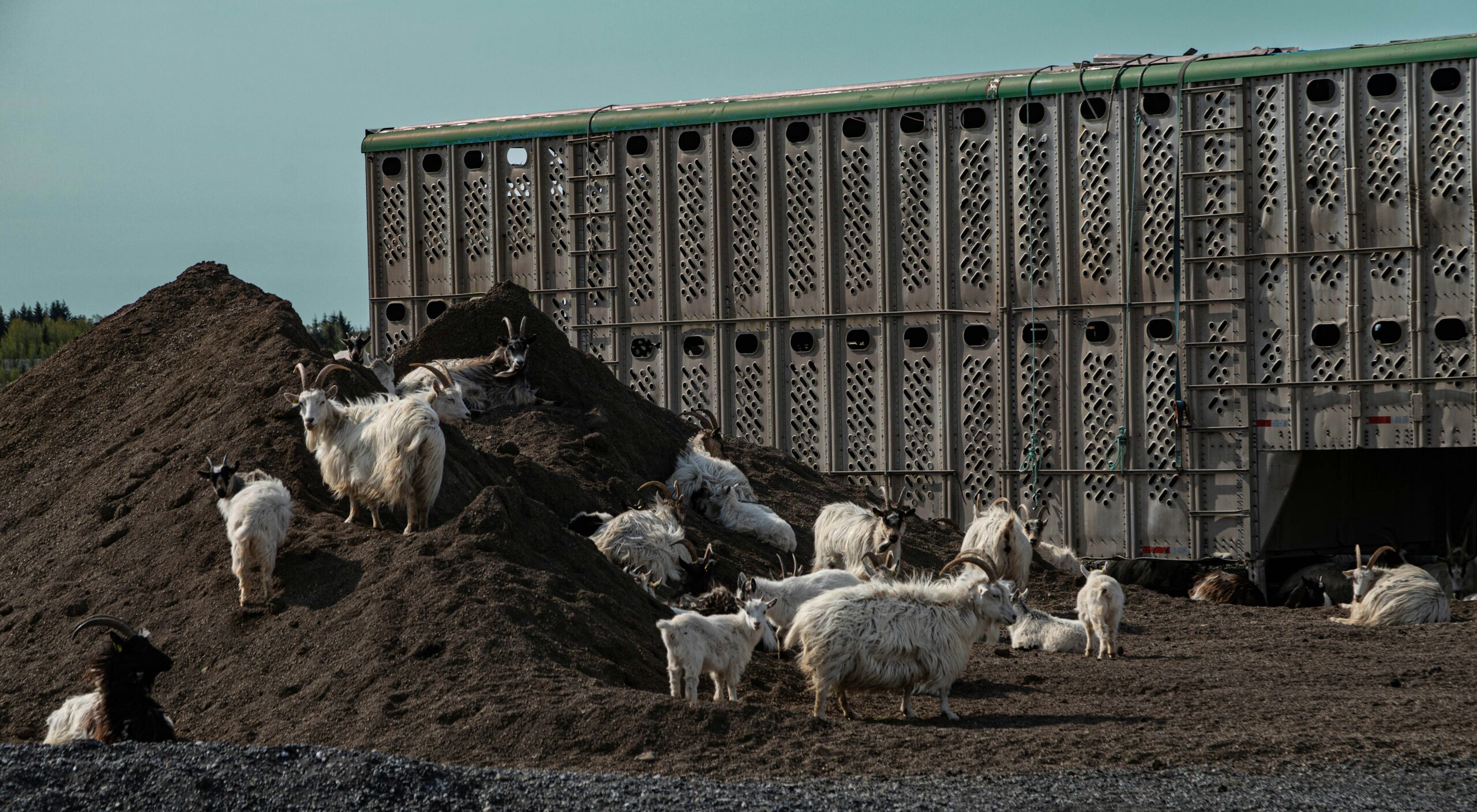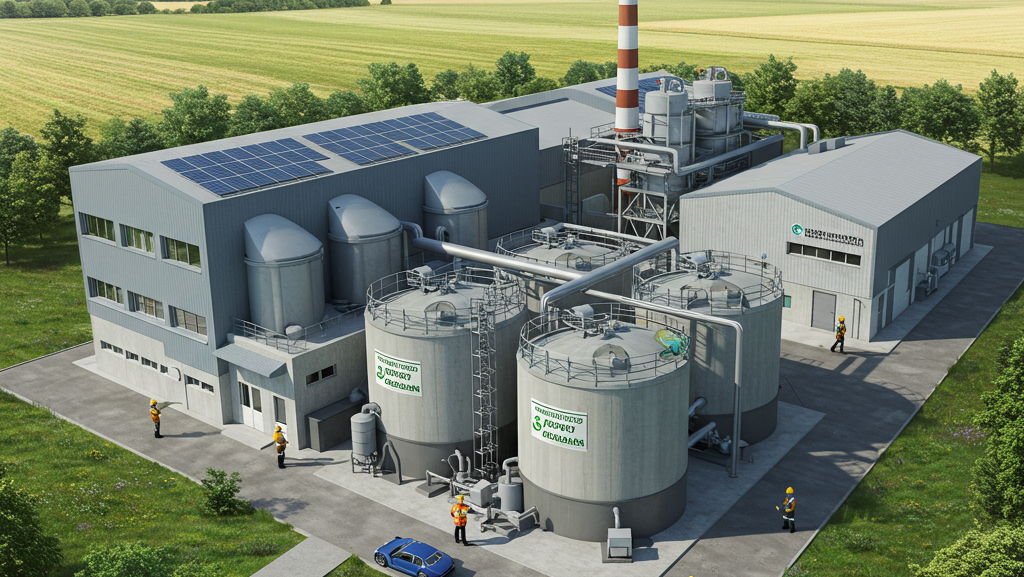Introduction to Livestock Management
Livestock management refers to the systematic approach to raising and breeding animals for food, fiber, and other products. This practice plays a crucial role in agriculture, as livestock contributes significantly to the economy and food supply. Effective livestock management ensures that farmers can produce nutritious food while also promoting animal health and welfare. Furthermore, it is an essential element in sustainable farming practices, as it minimizes the environmental impact and enhances biodiversity.
The importance of good livestock management cannot be overstated, given the continued rise in global population and the corresponding demand for food. Properly managed livestock operations can lead to increased productivity, improved food quality, and reduced costs. Additionally, sustainable practices in livestock management can help conserve natural resources and promote ecological balance, making it essential for long-term food security. Implementing sound livestock management strategies not only benefits individual farmers but also contributes to the overall resilience of the agricultural system.
Good livestock management is grounded in several key principles. First, animal welfare must be prioritized; this includes providing adequate nutrition, water, shelter, and medical care to ensure the well-being of the animals. Second, breeding practices should focus on maintaining genetic diversity and selecting animals that exhibit desirable traits such as disease resistance and high productivity. Moreover, incorporating efficient feeding, housing, and health management techniques enhances the overall productivity of livestock operations.
In summary, effective livestock management is vital to agricultural success and sustainability. By adhering to established principles and practices, farmers can ensure the effectiveness of their operations, thereby playing a significant role in achieving food security while fostering responsible stewardship of our resources.
Understanding Animal Health and Welfare
Animal health and welfare constitute a fundamental aspect of effective livestock management. Ensuring the well-being of animals is not only ethically significant but also plays a vital role in enhancing productivity and quality within the livestock industry. Healthy animals are more productive, contributing to better meat, milk, and egg quality, as well as improved reproductive performance.
Common health issues in livestock can arise from various factors, including poor nutrition, housing conditions, and inadequate veterinary care. Respiratory diseases, gastrointestinal disorders, and infections are prevalent among livestock populations. Recognizing and addressing these health challenges is crucial for maintaining herd integrity and productivity. Regular veterinary check-ups are essential; they facilitate early detection of health issues and promote timely intervention. This proactive approach is vital to prevent the spread of diseases within flocks and herds.
Vaccinations represent a cornerstone of preventive health care in livestock management. By implementing a comprehensive vaccination program, farmers can safeguard against diseases that pose significant threats to animal health and farm viability. Vaccination schedules may vary based on the species and specific health risks present in a given region; thus, it is imperative for livestock owners to work closely with a veterinarian to develop tailored health management plans that address local challenges. Additionally, preventive care such as parasite control and proper nutrition enhances overall animal resistance to diseases.
Welfare standards are increasingly finding their place in livestock management discussions, reflecting societal expectations concerning humane treatment. Ethical considerations, including space allowance, social interactions, and environmental enrichment, contribute to the overall well-being of animals. Complying with established welfare standards is not only beneficial for the animals but also enhances public perception of livestock farming. Proper animal welfare practices can lead to a more sustainable and profitable operation, ultimately fostering a healthier livestock industry.
Nutritional Management of Livestock
Nutritional management is a cornerstone of effective livestock management, as the health and productivity of livestock rely significantly on their dietary intake. Providing a balanced diet is essential for maintaining optimal growth rates, efficient reproduction, and overall well-being. A well-structured diet typically consists of a mix of energy, proteins, vitamins, and minerals tailored to meet the specific requirements of each livestock species. For instance, ruminants such as cows have different nutritional needs compared to monogastric animals like pigs. Hence, understanding the species-specific requirements is critical for successful nutritional management.
In addition to the composition of feeds, the quality of water supplied to livestock cannot be overlooked. Clean, freshwater availability is crucial as it directly influences feed intake, digestion, and nutrient absorption. Dehydration can lead to significant declines in productivity and health. Therefore, ensuring that livestock have access to fresh, uncontaminated water throughout the day is a fundamental aspect of their nutritional management.
The types of feed available also play a pivotal role in achieving the desired nutritional balance. Forage, grains, and commercially prepared feeds each offer different benefits and should be utilized effectively. Supplementing with specific nutrients can enhance the animal’s diet, especially during critical growth phases or reproductive cycles. Moreover, regular evaluation of livestock condition and growth performance is necessary to adjust nutrition strategies accordingly.
Furthermore, it is important to recognize how nutrition impacts the growth rates and performance of livestock. Proper nutritional management can lead to improved weight gain, better feed conversion ratios, and enhanced immune responses. Implementing effective feeding regimens not only optimizes productivity but can also contribute to longer-term sustainability in livestock operations.
Breeding Strategies for Improved Productivity
Effective breeding practices are crucial for enhancing livestock productivity, improving animal health, and ensuring sustainable agricultural practices. One of the foremost strategies involves genetic selection, which refers to the process of choosing breeding stock based on desirable traits. Breeding animals that exhibit higher resistance to diseases, greater fertility rates, and superior growth rates can significantly improve the overall productivity of a livestock operation. By maintaining a focus on these genetic attributes, producers can create a herd or flock that better adapts to environmental challenges and market demands.
Another key method in effective livestock breeding is artificial insemination (AI). This technique not only allows for the introduction of high-quality genetics into a herd without the need for keeping a bull but also offers the advantage of broadening genetic diversity. AI can lead to improved offspring while reducing the risks associated with natural breeding, such as the spread of venereal diseases. This method also enables the use of semen from outstanding breeding stock located away from the farm, providing access to premium genetics that can enhance overall herd quality.
The importance of meticulous record-keeping cannot be overstated in livestock management. Accurate records of lineage, health status, and breeding history are vital for making informed decisions regarding breeding strategies. By maintaining comprehensive records, producers can identify the most productive breeding pairs and track genetic progress over time. Furthermore, effective management of breeding cycles plays a critical role in producing healthy and productive livestock. Understanding the reproductive cycles of animals allows managers to optimize breeding schedules, reduce calving or lambing intervals, and ultimately improve overall productivity.
In conclusion, utilizing genetic selection, artificial insemination, thorough record-keeping, and efficient breeding cycle management are instrumental in enhancing livestock productivity. By implementing these breeding strategies, farmers and ranchers can achieve a healthier, more productive herd, securing better economic outcomes and contributing to sustainable agricultural practices.
Facility and Environmental Management
The effective management of livestock facilities is paramount in ensuring the welfare and productivity of animals. Proper design and maintenance of housing play a crucial role in livestock health. It is essential to create environments that provide adequate ventilation, temperature control, and space for animals. For instance, barns and shelters should be designed to protect livestock from harsh weather conditions while allowing for airflow that reduces humidity and the risk of respiratory diseases.
Pasture management is also critical in maintaining a healthy environment for livestock. Rotational grazing practices allow for sustainable grass growth while minimizing soil erosion and nutrient depletion. Implementing a well-planned pasture management system helps ensure that livestock have access to quality forage, improving their overall health and productivity. Regular assessments of pasture quality and quantity are necessary to determine when to rotate animals to new grazing areas, thus preventing overgrazing and promoting soil health.
Additional aspects of facility management include waste disposal and its management. Effective waste management practices are vital for maintaining a clean environment, as they mitigate harmful impacts on both livestock and surrounding ecosystems. Options for waste disposal, such as composting or anaerobic digestion, can convert waste into valuable resources while minimizing pollution risks. It is essential to develop a waste management plan that complies with local regulations while also promoting environmental sustainability.
Lastly, biosecurity measures cannot be overlooked in maintaining a safe environment for livestock. Implementing strict biosecurity protocols helps prevent the introduction and spread of pathogens. This includes controlling access to facilities, requiring showers and clean clothing for visitors, and regularly sanitizing equipment. Through these combined strategies in facility and environmental management, livestock producers can promote animal health, improve productivity, and ensure a sustainable operation.
Record Keeping and Data Management
Effective livestock management hinges on the systematic maintenance of accurate records and data management. By keeping meticulous records, livestock owners can monitor the health and productivity of their animals, facilitating informed decision-making and enhancing overall farm efficiency. A comprehensive approach to record-keeping involves tracking various essential data points, including health history, breeding information, feeding schedules, and financial transactions.
Health records are vital for monitoring livestock well-being. These records should encompass vaccinations, illness treatments, and any veterinary interventions. Such documentation not only supports the health management of the herd but also serves as a legal safeguard in potential animal welfare cases. Additionally, breeding data is crucial for maintaining genetic diversity and improving herd quality. It includes details on mating dates, pregnancy confirmations, and offspring health, allowing farmers to make strategic breeding decisions based on performance metrics.
Feeding schedules are another key component of effective livestock management. These records help ensure that animals receive balanced nutrition appropriate for their age and production stage. Regular adjustments to feed formulations based on livestock growth and health indicators can optimize nutrient intake and minimize costs.
Financial records are indispensable for understanding the economic viability of livestock operations. Keeping accurate financial records aids in budgeting, forecasting, and identifying potential areas for cost reduction. Implementing technology in data management can enhance these efforts significantly. Various software solutions are available, offering user-friendly interfaces for tracking all aspects of livestock management. These tools often include features for data analysis, enabling farmers to glean insights from their records, thereby driving improvements in their operation.
In conclusion, systematic record-keeping and diligent data management are cornerstones of successful livestock management. By integrating technology and maintaining comprehensive records, livestock owners can ensure robust health management, effective breeding practices, and sound financial oversight, ultimately leading to improved productivity and profitability.
Sustainable Practices in Livestock Production
In modern agriculture, the adoption of sustainable livestock management practices has become essential for minimizing environmental impacts while ensuring economic viability. One of the most effective approaches involves rotational grazing. This practice entails moving livestock between pasture areas, allowing for pasture recovery and promoting healthy soil ecosystems. By controlling grazing patterns and duration, farmers can enhance pasture productivity, reduce soil erosion, and improve biodiversity. Rotational grazing also helps prevent overgrazing, which can lead to land degradation.
Another key aspect of sustainable livestock management is integration with crop production. Combining livestock with crop farming helps recycle nutrients through manure application, reduces reliance on chemical fertilizers, and promotes a more circular agricultural system. This synergy not only maximizes land use but also contributes to soil health, which is crucial for sustaining livestock productivity over time. By diversifying farm operations, farmers can improve resilience against market fluctuations and environmental challenges.
Implementing carbon footprint reduction strategies is vital for livestock producers aiming to minimize their environmental impact. Practices such as optimizing feed efficiency, utilizing cover crops, and adopting innovative manure management systems can significantly lower greenhouse gas emissions associated with livestock. Moreover, livestock producers might consider implementing renewable energy solutions, such as solar or biogas, further contributing to a reduction in their overall carbon footprint.
The importance of sustainability certifications in livestock production cannot be overlooked. These certifications help educate consumers about the environmental impact of their food choices while incentivizing farmers to adopt environmentally friendly practices. By achieving recognized sustainability certifications, livestock producers can enhance their marketability, appeal to a growing base of eco-conscious consumers, and contribute to the global movement for sustainable food systems.
Market Trends and Consumer Expectations
In recent years, the livestock industry has witnessed notable shifts in market trends and consumer preferences, which are considerably impacting production practices. One critical factor driving change is the increasing demand for organic and humane animal products. Many consumers are becoming more conscientious about the sources of their food, prompting a significant shift toward organic livestock farming. This trend is partly attributed to heightened awareness regarding health, sustainability, and animal welfare. Moreover, the rise of ethical consumerism has spurred demand for meat, dairy, and eggs that are certified organic, free from antibiotics, and produced in humane environments.
In addition to organic and humane products, there is a growing interest in locally sourced food. Consumers are increasingly inclined to purchase products from nearby farms, perceiving these options as fresher and more conscientious for their communities and the environment. This shift presents a unique opportunity for livestock producers to engage in direct marketing practices, such as farmers’ markets or community-supported agriculture (CSA) programs. By building relationships with local consumers, farmers can cultivate loyalty and trust, which are essential components of long-term profitability.
To align with these market expectations and enhance profitability, livestock producers must adapt their management practices. This includes integrating organic farming techniques, ensuring animal welfare standards are met, and creating transparency in their supply chains. Implementing sustainable practices not only meets consumer demands but also contributes to the preservation of natural resources. Additionally, leveraging digital platforms to share information about sourcing and production methods can help farmers connect with consumers who prioritize ethical consumption. Ultimately, embracing these current trends will position livestock producers favorably in a competitive market while meeting the evolving expectations of consumers.
Conclusion and Future Directions
In assessing the best practices for effective livestock management, it is evident that a multifaceted approach plays a pivotal role in enhancing both productivity and sustainability within the sector. Key aspects discussed throughout this article include the importance of optimizing breeding strategies, implementing health management protocols, and utilizing efficient feeding practices. These foundational elements contribute significantly to the overall health and productivity of livestock. Additionally, the integration of technology, such as precision farming tools and data analytics, is reshaping traditional practices, making livestock management more efficient and informed.
The future of livestock management holds promising advancements that can further drive efficiency and sustainability. Emerging technologies like automated monitoring systems and artificial intelligence are paving the way for real-time data collection and analysis. This can help farmers make informed decisions regarding animal health and resource allocation. For instance, using wearable technology can provide insights into livestock behavior and health metrics, enabling early detection of potential issues.
Moreover, the adoption of sustainable practices will likely gain prominence as environmental concerns continue to influence agricultural policies and consumer preferences. Integrating agroecological principles, such as rotational grazing and diversified cropping systems, can enhance soil health and reduce the ecological footprint of livestock operations. As consumers demand more transparency and ethical practices in food production, effective livestock management must align with these evolving trends.
In conclusion, the landscape of livestock management is rapidly changing, driven by technological innovations and a growing emphasis on sustainability. As the industry moves forward, embracing these best practices will be crucial for meeting the challenges and demands of a dynamic market while ensuring the welfare of animals and the environment. Stakeholders in the livestock sector must remain adaptable and informed to thrive in this evolving paradigm.





